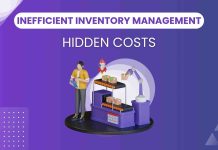To be extremely simple, in layman’s terms, HR Management Software is how all internal management of human resources (employees) is accomplished.
This means starting from recruitment (CV bank, scrutinizing, finalizing the employees, etc.) and moving to onboarding, from training to payroll, from attendance to performance reviewing; everything is accomplished without any issue.
If you understand how technology works, you will know that technology makes any process faster, simple, and more efficient. Technology saves time, reduces costs, and helps in increasing profit margins.
(If you do not understand, then please see these examples: from a phone fixed with wire to a smartphone you can carry all around; from an animal helping you move and cover large distances to a bird, or airplane, taking tens or hundreds of people and covering thousands of miles within few hours, this is what technology helps us accomplish.)
In the next 5 years, the expected growth rate for the HR software market is estimated to be 10.4%. Also, expected sales in the global HR software market are more than 70 billion USD.
Global Human Resources Software Market Growth 2022-23
(Sales data in billions with respect to year)
Furthermore, technology has become an irreplaceable tool even in the dynamic world of HR management. By giving us the innovative Human Resource Management Software, technology has helped HR to:
- Enhance efficiency in all tasks
- Improve overall HR operations
- Streamline all human resource processes
This is why the world can call this tool a revolution.
The way HR professionals handle their tasks, they do not take months to complete anymore. This is what this article is all about. This article will help you in understanding what HR Management Software is, why it is crucial for the HR departments in 2023 and beyond, and how you can implement it in your company today.
What is HR Management Software?
People use different ways to point out the HR Management Software. Some call it Human Resource Information System (HRIS), while others use the phrase Human Resource Management System (HRMS).
No matter what way you select, HR Management Software is basically a comprehensive digital platform designed to systematize and centralize various HR processes. The software acts as a one-stop solution for managing:
- Employee data
- Payroll Management
- Recruitment Processing
- Performance Evaluations
- Benefits Administration
- Time and Attendance Tracking
And more
The contemporary HR Management Software typically offers:
- A user-friendly interface
- With cloud-based accessibility
These elements help in enabling HR professionals to not only access and update critical information but also do it from anywhere, at any time.
Most HR software solutions can be personalized. The personalization feature helps, as you can use it to fit the explicit needs of your organization. Furthermore, this helps in providing a customizable and scalable solution for businesses of all sizes.
Why is HR Management Software important for the HR department?
HR Management Software is a tool that today is an essential part of all HR departments in the world. The previous statement is not without proof. To help you understand this, several key factors are considered, as described below.
But first and foremost, why do we call it essential?
Think of this tool as a smartphone. Can you carry on living on a day-to-day basis without one?
Well, this was a rhetorical question. The answer is obviously no. You need it to connect with anyone, anywhere, anytime. You need it to apply for jobs, be part of online meetings, take notes, play music, and so on.
Similarly, with HR management software, you can do all of the following, and it will change how HR worked before you started using the software.
1. Increased Efficiency and Productivity:
By automating repetitive and time-consuming tasks, HR Management Software allows HR professionals to focus on more strategic initiatives.
Tasks like payroll processing, leave management, and attendance tracking can be handled without a glitch. It helps in reducing the risk of errors and freeing up valuable time.
2. Integrated Employee Information:
Gone are the days of maintaining paper-based employee records and struggling to find information when needed. Human Resources Management Software centralizes all employee data, including, but not limited to:
- Personal details
- Employment history
- Certifications
- Performance evaluations
This ensures:
- Data Accuracy
- Easy accessibility
- Compliance with data protection regulations
3. Improved Recruitment and Onboarding:
The HR software streamlines the recruitment process, from posting job openings to applicant tracking and conducting interviews. It enables HR teams to evaluate candidates more efficiently and make informed hiring decisions.
Furthermore, once hired, the onboarding process becomes smoother with automated workflows for new employee orientation and training.
4. Enhanced Performance Management:
The top HR Software options assist in the implementation of performance evaluation frameworks and the tracking of employee goals and objectives. This tool helps identify who the top performers are.
In addition, such software solutions also assess training needs and recognize areas for improvement for the employees. Once the weaknesses come to light, your workforce will become more engaged and productive.
5. Improved Compliance and Reporting:
Staying compliant with labor laws and regulations is critical for any organization. HR Management Software ensures that HR practices align with legal requirements and generates comprehensive reports for audits and compliance purposes, mitigating the risk of penalties and lawsuits.
6. Employee Self-Service:
Many HR Management Software solutions offer employee self-service portals. This empowers employees to access their personal information, submit leave requests, view pay stubs, and update their details without HR intervention, promoting transparency and employee satisfaction.
How do you implement HR Management Software effectively?
Implementing HR Management Software requires careful planning and execution to ensure a successful transition and optimal utilization. Here are the essential steps to follow:
1. Assess Needs and Choose the Right Software:
Start by identifying the specific needs and pain points of your HR department. Research and evaluate various HR Management Software options to find the one that aligns best with your requirements, budget, and organizational size.
2. Involve Stakeholders:
Include HR staff, IT personnel, and other relevant stakeholders in the decision-making process. Their input and feedback are crucial for selecting the most suitable software and ensuring a smooth implementation.
3. Data Migration and Training:
Before implementation, ensure that all existing employee data is accurately migrated to the new system. Additionally, conduct thorough training sessions to familiarize HR staff with the software’s features and functionalities.
4. Customize and Test:
Customize the software to fit your organization’s unique HR processes and policies. Test the system thoroughly to identify and rectify any issues or bugs before going live.
5. Phased Rollout:
Consider a phased rollout approach to minimize disruptions to HR operations. Gradually introduce different modules of the software to allow HR staff and employees to adapt to the changes.
6. Provide Ongoing Support:
Offer continuous support and training to HR personnel and employees even after the software is fully implemented. Regularly review its performance and gather feedback for potential improvements.
Conclusion
HR Management software is now one of the most essential technological advancements in the business world. HR departments around the world understand how to revolutionize the way HR tasks are managed.
The HR software has the ability to simplify all Human Resource relevant processes, centralize relevant information, enhance efficiency, and improve compliance, making it a requisite tool in the present-day place of work.
By deciding on the right software, involving stakeholders, and implementing it effectively, HR professionals can reveal the full impact of HR Management Software and smooth the way for a more productive and engaging workforce.




















